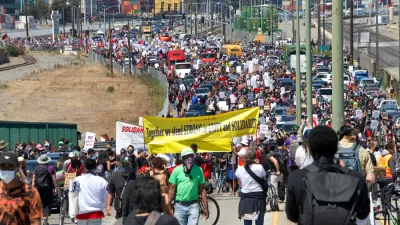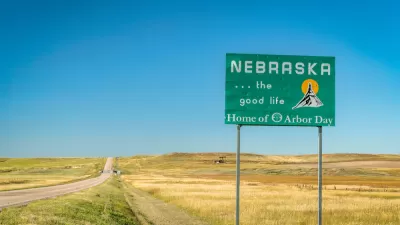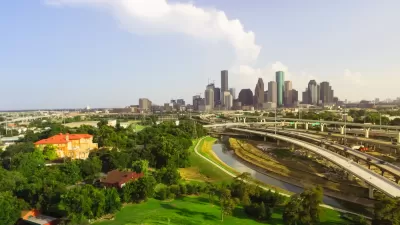Some motorists see open roads as an opportunity for stress relief. Transportation officials urge motorists to slow down, citing dramatically increased rates of speeding since the onset of the pandemic.

Recent data from transportation analytics company Inrix shows a 41% decrease in nationwide traffic compared to pre-pandemic figures. That drop is even greater in the nation's most populous cities with data showing a 50% decrease in Los Angeles and a 60% reduction in New York.
To the lament of transportation officials, this staggering drop in vehicle miles traveled does not translate to an equal decrease in auto-collisions which decreased a disproportionate 21% in the United States. "Reckless driving has increased dramatically since March, leading to a disproportionate number of speed-related crashes and fatalities, according to law enforcement and traffic experts," reports Luz Lazo.
Lazo points out that there are psychological reasons for increased reports of drag racing, reckless driving, and speeding (average speed doubled in many cities). A few factors are at play: open roads lead to faster-moving traffic and the opportunity to speed, a chance many drivers aren't willing to pass up for the sake of public safety. Researchers also find that more people are taking to the roads despite shelter-in-place mandates. Some drivers are combating boredom by taking joyrides, finding relief in the excitement and adrenaline rush that comes along with speeding. One psychologist compares the experience to a drug.
Public health officials urge drivers to slow down. As Lazo puts it, "hospitals are stressed, people are dying from the virus and a preventable crash would add another burden to first responders."
FULL STORY: The coronavirus pandemic emptied America’s roadways. Now speeders have taken over.

Alabama: Trump Terminates Settlements for Black Communities Harmed By Raw Sewage
Trump deemed the landmark civil rights agreement “illegal DEI and environmental justice policy.”

Study: Maui’s Plan to Convert Vacation Rentals to Long-Term Housing Could Cause Nearly $1 Billion Economic Loss
The plan would reduce visitor accommodation by 25% resulting in 1,900 jobs lost.

Planetizen Federal Action Tracker
A weekly monitor of how Trump’s orders and actions are impacting planners and planning in America.

Waymo Gets Permission to Map SF’s Market Street
If allowed to operate on the traffic-restricted street, Waymo’s autonomous taxis would have a leg up over ride-hailing competitors — and counter the city’s efforts to grow bike and pedestrian on the thoroughfare.

Parklet Symposium Highlights the Success of Shared Spaces
Parklets got a boost during the Covid-19 pandemic, when the concept was translated to outdoor dining programs that offered restaurants a lifeline during the shutdown.

Federal Homelessness Agency Places Entire Staff on Leave
The U.S. Interagency Council on Homelessness is the only federal agency dedicated to preventing and ending homelessness.
Urban Design for Planners 1: Software Tools
This six-course series explores essential urban design concepts using open source software and equips planners with the tools they need to participate fully in the urban design process.
Planning for Universal Design
Learn the tools for implementing Universal Design in planning regulations.
Caltrans
Smith Gee Studio
Institute for Housing and Urban Development Studies (IHS)
City of Grandview
Harvard GSD Executive Education
Toledo-Lucas County Plan Commissions
Salt Lake City
NYU Wagner Graduate School of Public Service





























